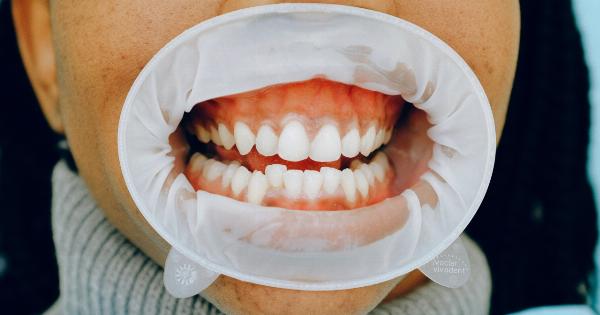Bleeding gums are a common dental problem that can be caused by a variety of factors. If you notice your gums bleeding when you brush or floss your teeth, it’s important to determine the cause and take appropriate action to prevent further damage.
Here are 10 possible causes of bleeding gums:.
1. Gingivitis
The most common cause of bleeding gums is gingivitis, which is a mild form of gum disease. Gingivitis occurs when plaque builds up on your teeth and irritates the gums. Symptoms of gingivitis include redness, swelling, and bleeding of the gums.
If left untreated, gingivitis can progress to periodontal disease, a more serious condition that can lead to tooth loss.
2. Brushing Too Hard
Brushing your teeth too vigorously can also cause bleeding gums. When you brush too hard, you can damage the delicate gum tissue and cause it to bleed. To avoid this, use a soft-bristled brush and brush gently in a circular motion.
3. Flossing Too Hard
Just like brushing too hard, flossing too hard can also cause your gums to bleed. Be gentle when flossing, and use a back-and-forth motion to gently remove food particles and bacteria from between your teeth.
If you have difficulty flossing, ask your dentist for tips or try using a floss pick or water flosser.
4. Pregnancy
Pregnancy can cause hormonal changes that increase blood flow to the gums and make them more sensitive. This can lead to a condition called pregnancy gingivitis, which can cause bleeding gums.
Pregnant women should take extra care of their dental health and visit their dentist regularly.
5. Vitamin Deficiency
A lack of vitamin C in your diet can weaken your gums and cause them to bleed. Eating a diet rich in fruits and vegetables can help ensure that you get enough vitamin C and other essential nutrients to maintain healthy gums.
6. Medications
Some medications, such as blood thinners or antiplatelet drugs, can increase the risk of bleeding gums. If you are taking any prescription medications, talk to your doctor or dentist about the potential side effects and how to manage them.
7. Ill-Fitting Dentures
If your dentures don’t fit properly, they can rub against your gums and cause them to bleed. It’s important to have your dentures checked and adjusted by your dentist regularly to ensure a proper fit.
8. Gum Injury
A trauma or injury to your gums, such as a cut or puncture, can also cause them to bleed. If you experience a gum injury, rinse your mouth with warm salt water and apply pressure to the affected area with a clean cloth or gauze pad.
If the bleeding persists, seek medical attention.
9. Smoking
Smoking can damage your gums and make them more susceptible to bleeding. Quitting smoking can improve your overall dental health and reduce your risk of bleeding gums.
10. Advanced Gum Disease
If your bleeding gums are accompanied by other symptoms, such as bad breath, receding gums, or loose teeth, it may be a sign of advanced gum disease. This condition requires prompt treatment from a dental professional to prevent further damage.



























